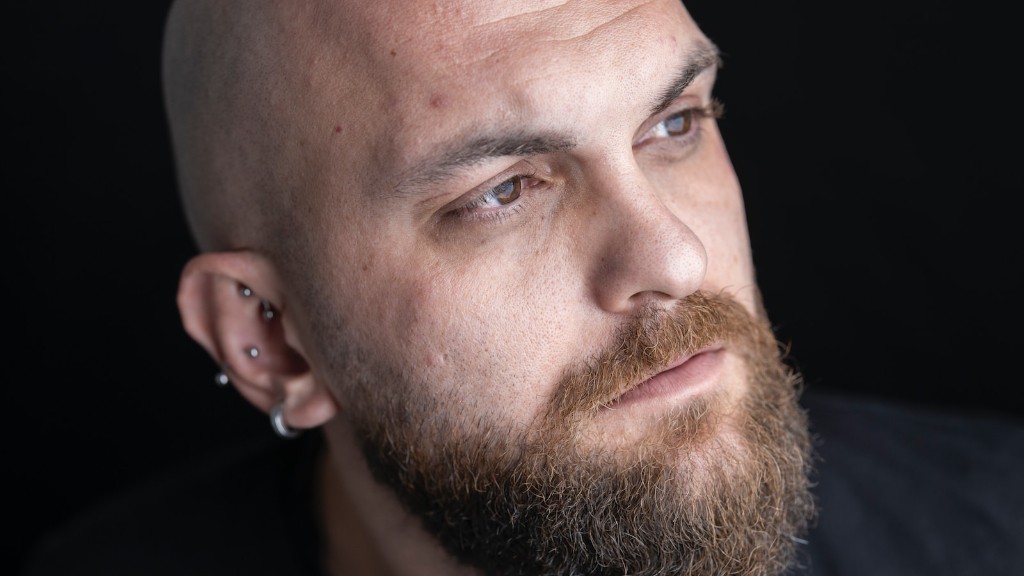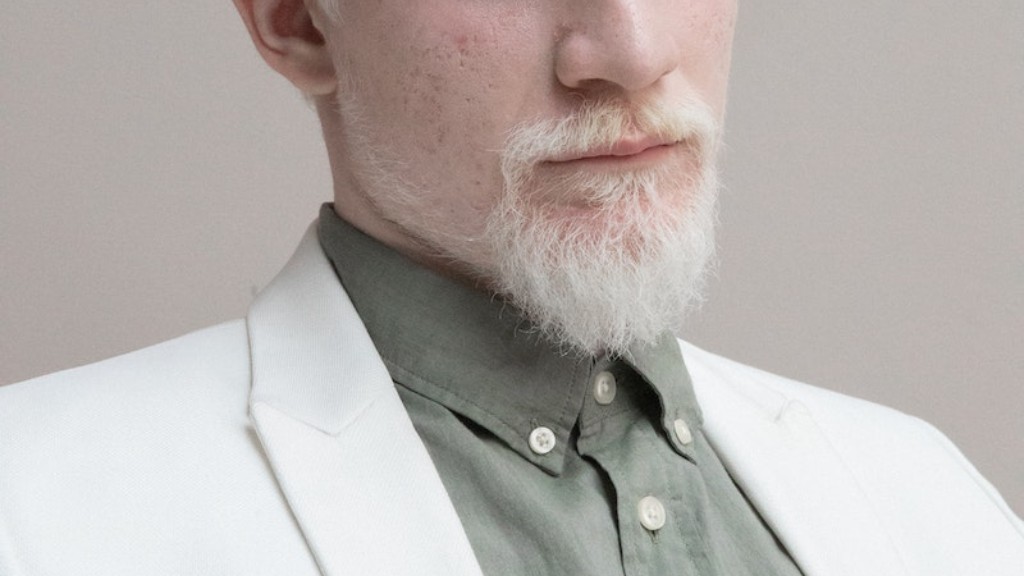There is no scientific evidence to suggest that acne can prevent beard growth. However, some men do believe that their acne has led to a reduction in beard growth.
There is no scientific evidence to support the claim that acne can prevent beard growth. Some people may believe that acne can impact hair follicle function, but there is no concrete evidence to back up this claim.
Does acne limit beard growth?
Pimples do not necessarily affect your beard growth. If any skin is scarred deeply, it may grow less facial hair than other parts of your face. However, cystic acne can be an issue in beard growth. It tends to limit the blood supply to your facial hair follicles, which may interfere in your beard growth.
It is unfortunate that one of the effects of acne inflammation and scarring is the loss of hair follicles. This means that facial hair will not grow back after resurfacing for acne scarring.
How do you grow a beard with acne prone skin
If you have oily skin or suffer from acne, it is important to use a gel cleanser that contains salicylic acid or glycolic acid. These ingredients will help to cleanse your pores and prevent clogging. Be sure to look for a cleanser that is labeled as “non-comedogenic” to ensure that it won’t cause any further skin issues. In addition to cleansing your skin, you should also take care to groom your beard. Detangle the hairs before wetting them, and style as desired. When trimming your beard, be sure to comb out the hairs first to avoid any accidental cuts.
If you have mild to moderate acne or a breakout in one area, you can still shave. Just be sure to take extra care when shaving around any inflamed or painful acne. It’s also a good idea to speak with a dermatologist before shaving if you have any concerns.
What limits beard growth?
The anagen phase is the active growth period of the beard. The longer the beard remains in this phase, the longer it will be. The average terminal length of a beard ranges from 12 inches to 36 inches.
Argan beard oil is a great oil for treating acne by regulating the skin’s sebum production. It is suitable for most skin types and a great oil for hair.
Why can’t I grow a beard at 20?
There are a lot of factors that contribute to how thick your beard will be, but genetics are the primary one. You can’t change your genetics, but you can improve your chances of growing a thick beard by living a healthy lifestyle and eating a balanced diet. For many men, their beard will continue to get thicker as they age.
When a scar forms on damaged skin, the hair follicles do not grow back. This is because there are no hair follicles in scar tissue. Hair follicles are capsules underneath the skin that hold and regrow hair. Blood vessels under follicles help them grow and regenerate.
Why is my beard — not growing on my cheeks
There are a few possible reasons why you might not be able to grow a beard on your cheeks. It could be due to poor nutrition habits, your age, weak circulation in the cheek area, or just unknown genetic factors. Your hormones can also be involved, but it’s not the most likely culprit if you can grow beard well in other areas of the face. If you’re having trouble growing a beard on your cheeks, you might want to try some of the tips in this article: https://www.growabitbeard.com/how-to-grow-a-beard-on-your-cheeks/.
Testosterone is a hormone that is responsible for many things including facial hair growth. A low level of testosterone can mean that there is a decreased chance of being able to grow a beard.
What helps beard growth?
There are a few things you can do to help encourage beard growth:
1. Exercise – Keeping your body healthy will help promote beard growth.
2. Diet – Eating a healthy, balanced diet will give your beard the nutrients it needs to grow.
3. Beard growth vitamins and supplements – There are many supplements available that are specifically designed to help with beard growth.
4. Sleep – Sleep is crucial for overall health and can help promote beard growth.
5. Washing and moisturizing – Keeping your beard clean and hydrated will help it to grow.
If you suffer from acne, you may want to avoid using beard oil. While it can help to soften sharp quills, it can also promote acne in those who are already acne-prone. So, if you breakout easily, it might be best to skip the beard oil.
Does salicylic acid affect beard growth
It has the amazing benefits of Tea Tree and Salicylic Acid, which keep your beard free from infections, prevent infection, and naturally stimulate beard growth. These ingredients work together to create a healthy environment for your beard to grow.
If you are struggling with beard acne, don’t worry, you are not alone. Many men suffer from this frustrating condition. The good news is that there are treatments available that can help.
Medicated face wash – Look for a face wash that contains antibacterial and anti-inflammatory ingredients like benzoyl peroxide and salicylic acid. These ingredients can help to clear up acne and prevent new breakouts from forming.
Topical treatments – There are topical treatments available that can be applied directly to blemishes to help clear them up. These treatments can be particularly effective for stubborn acne spots.
If you are struggling with beard acne, don’t despair, there are treatments available that can help. Talk to your doctor or dermatologist about the best options for you.
Is it okay to shave over acne?
If you already have acne, shaving can actually help to remove dead skin cells and help to unclog pores. However, you must be careful not to shave too harshly or to spread bacteria around. Use a sharp razor and shaving cream to help protect your skin.
Genetics play a role in how facial hair grows and when your beard reaches its full potential. “From ages 18 to 30, most beards continue to develop in thickness and coarseness,” he says. “So if you’re 18 and wondering why you don’t have a full beard yet, it just may not be time.” Ethnicity can also play a role.
Conclusion
There is no scientific evidence to suggest that acne can prevent beard growth. However, some people mayexperience reduced facial hair growth as a result of acne scars or other skin conditions that can affect hair follicle function.
There is no scientific evidence to support the claim that acne can prevent beard growth. However, some men may experience temporary beard loss as a result of acne flare-ups.





